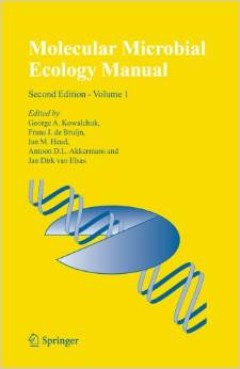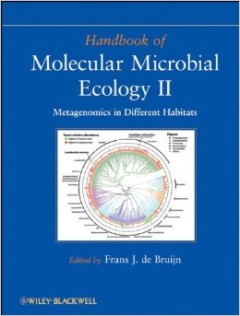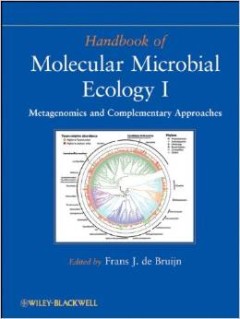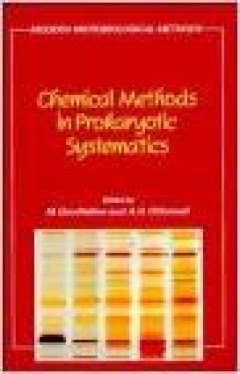Filter by

Molecular microbial ecology manual volume 1 & 2
Microbes are key drivers of the world's ecosystems. The vast majority of the world's diversity and metabolic potential lies within micro-organisms, yet with the advent of molecular-scale observation, we are still barely beginning to understand this microscopic resource. The expanded second edition provides a detailed description of the methods that have made microbial ecology possible.
- Edition
- -
- ISBN/ISSN
- 9781402021763
- Collation
- xvi, 849 p. : ill. ; 24 cm.
- Series Title
- -
- Call Number
- 576 Mol

Handbook of molecular microbial ecology II : metagenomics in different habitats
Metagenomics has revolutionized microbiology and many associated health and environmental fields. This is the firstcomprehensive treatise covering the various omics in a large variety of habitats, which could not previously have been analysed without metagenomic methodology.Thisis areference work for people in the field and those who would like to enter it.
- Edition
- -
- ISBN/ISSN
- 9780470647196
- Collation
- xx, 609 p. : ill. : ind. ; 29 cm.
- Series Title
- -
- Call Number
- 576 Han

Handbook of molecular microbial ecology I : metagenomics and complementary ap…
Metagenomics is an emerging field that has changed the way microbiologists study microorganisms. It involves the genomic analysis of microorganisms by extraction and cloning of DNA from a group of microorganisms, or the direct use of the purified DNA or RNA for sequencing, which allows scientists to bypass the usual protocol of isolating and culturing individual microbial species. This method i…
- Edition
- -
- ISBN/ISSN
- 9780470644799
- Collation
- xxii, 761 p. : ill. : ind. ; 29 cm.
- Series Title
- -
- Call Number
- 576 Han

Chemical methods in prokaryotic systematics
The use of chemical techniques is having a profound effect on approaches to the characterization, classification and identification of prokaryotes, i.e. archaea and bacteria. This book provides a comprehensive, up-to-date treatment of such methods used in prokaryotic systematics and is written by leading specialists in this field. Designed as a laboratory manual, this volume describes the lates…
- Edition
- -
- ISBN/ISSN
- 9780471941910
- Collation
- xiii, 576 p. : ill. : ind. ; 24 cm.
- Series Title
- -
- Call Number
- 576 Che
 Computer Science, Information & General Works
Computer Science, Information & General Works  Philosophy & Psychology
Philosophy & Psychology  Religion
Religion  Social Sciences
Social Sciences  Language
Language  Pure Science
Pure Science  Applied Sciences
Applied Sciences  Art & Recreation
Art & Recreation  Literature
Literature  History & Geography
History & Geography